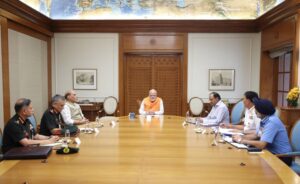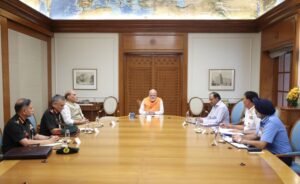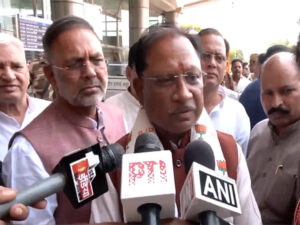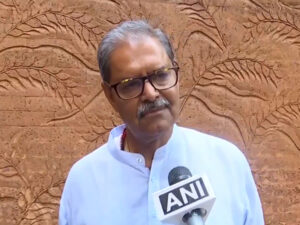SC to hear appeal against Madras HC order staying sale of Ganesh idols made of Plaster of Paris
New Delhi [India], September 18 (ANI): The Supreme Court on Monday agreed to hear on Monday an appeal against a division bench of the Madras High Court which stayed an order of a single judge allowing the sale of Ganesh idols made using Plaster of Paris.
Senior advocate Shyam Divan mentioned the matter before a bench of Chief Justice of India DY Chandrachud and Justices JB Pardiwala and Manoj Misra saying the Madurai bench of Madras High Court had on Sunday imposed a ban on the sale of Ganesh idols made using Plaster of Paris (PoP).
Divan said the single judge has held that there cannot be a stay on the manufacturing of idols on Saturday, however, yesterday a division bench stayed the order of the single judge. “We will take it up at the end of the board,” said CJI while granting an urgent hearing to the petitioner.
Justice GR Swaminathan of the Madurai bench on Saturday observed that while sale of Ganesh idols made of plaster of Paris cannot be restricted, their immersion in water bodies can be restricted, and thus allowed artisans to sell Ganesha idols made using PoP by keeping a register containing details of all purchasers, which could then be inspected by authorities.
However, on September 17 a division bench of Justice SS Sundar and Justice Bharatha Chakravarthy stayed the order while putting a hold on manufacturing, selling or immersion of idols made of PoP or plastics.
The division bench relied upon the orders of the Nation Green Tribunal and a division bench order that upheld the guidelines of the Pollution Control Board and noted that these guidelines were applicable in the State even in the absence of specific rules by the State government.
It emphasised that idols were traditionally made using clay and added that the prohibition was only with respect to the use of PoP.
It has also rejected the arguments that such prohibition would cause financial hardship to the artisans, and said that the loss would be less since there was only a day left for the ‘Ganesh Chaturthi’.
The single judge had said that the artisan was entitled to sell his articles and that the right was guaranteed under Article 19(1)(g) of the Constitution.
The State argued before the division bench that using PoP had potential health effects and was thus a health hazard for human life and allowing sale of idols made using hazardous materials like PoP would infringe the right to life guaranteed under Article 21 of the Constitution.






